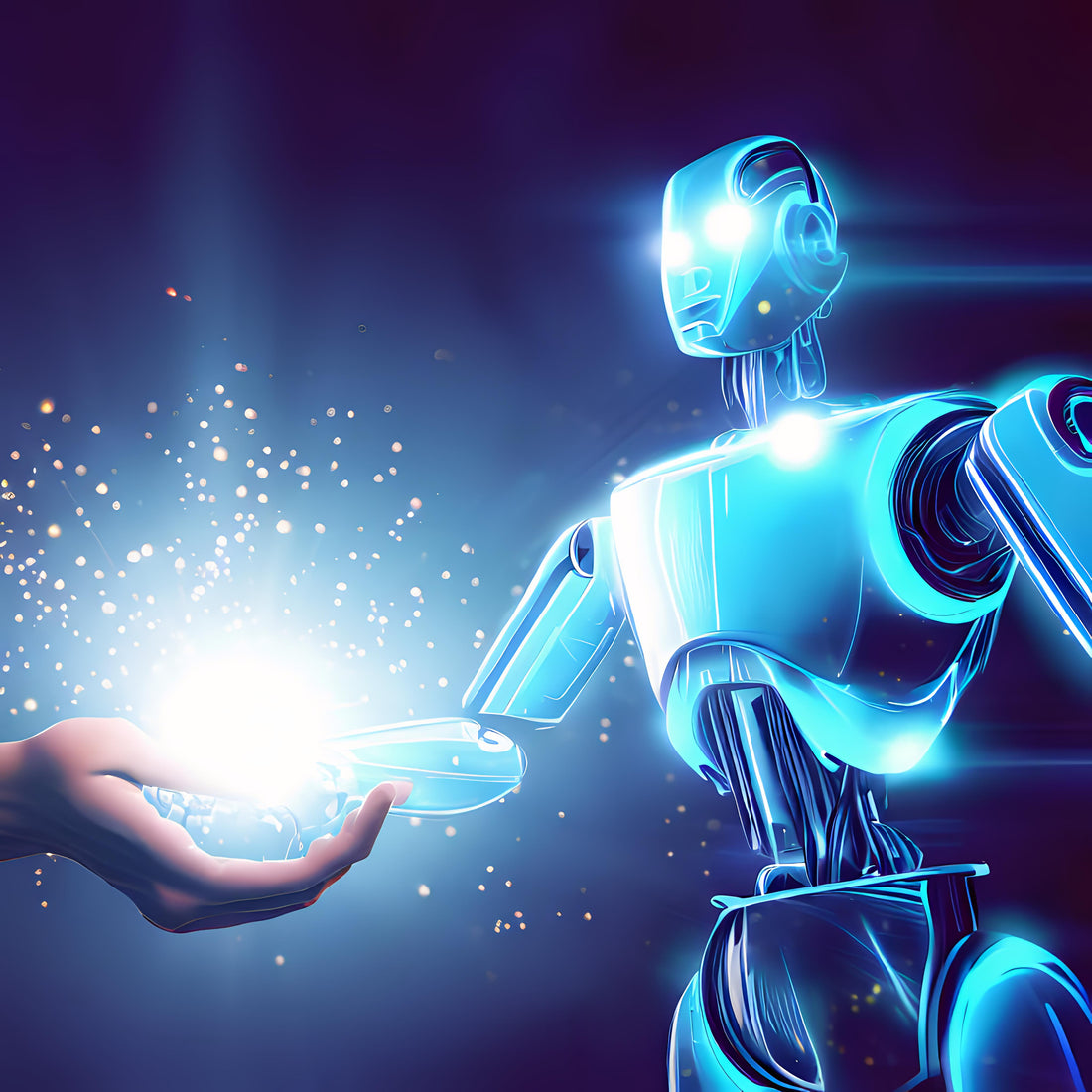
The Rise of AI: Opportunities and Challenges for Humanity
Share
The meteoric rise of artificial intelligence has the potential to profoundly impact society in both promising and perilous ways. AI can help solve humanities greatest challenges, from climate change to disease. However, we must ensure its responsible development and use. With prudent safeguards and oversight, AI can maximize the common good. But without them, AI may exacerbate inequality and compromise civil liberties, or even pose existential risks if super intelligent systems spiral out of control.
AI's ascent demands wisdom and shared values. If we can guide AI's progress ethically, it may prove a salve to some of humanity's deepest afflictions. But we stand at a crossroads: one path leads to flourishing and abundance; the other to dystopia. The choice is ours. Let us choose well.
Understanding AI and its surge in popularity necessitates examining the technologies that enable machines to perform tasks traditionally requiring human intellect, such as reasoning, learning, decision-making, and creativity.
Despite the disparate nature of various AI approaches, their ultimate goal converges on the creation of algorithms and systems capable of perceiving, reasoning about and engaging with the world in a fashion resembling human cognition, though not readily discernible by currently existing AI detectors due to the flexibility and nuance of human expression.
The recent upswing in AI's prominence is primarily due to the accessibility of vast data resources, advances in computing power and algorithms, and the emergence of novel applications.
While AI has the potential to revolutionize every industry and sector, its scope extends beyond business and profit. AI can be used to for social good, enhancing the lives of people who are vulnerable and need help. Applying artificial intelligence to tackle society's most pressing problems could help alleviate vast swathes of human suffering, should we choose to pursue that noble path.
Advantages of AI for Mankind
AI offers a lot of benefits, such as:
Reducing human error as well as increasing efficiency: AI can perform tasks prone to human error with greater accuracy, such as medical diagnosis, drug discovery, weather forecasting, and disaster response. For example, AI can detect diseases from medical images or sensor data, identify potential new drug molecules, predict weather patterns and natural disasters, and coordinate emergency relief efforts.
Operating non-stop and cutting costs: AI can work continuously without exhaustion, learning from data and feedback with minimal human supervision. This reduces labor and training costs while boosting productivity and quality. AI's applications include automating customer service chatbots, monitoring crops and livestock, and providing adaptive learning platforms for students.
Optimizing processes and handling repetitive tasks: AI can automate tedious tasks, freeing human time and energy for more creative and meaningful work. AI can process invoices, check product quality, or transcribe audio files, among other applications.
Providing digital assistance and speeding up decision-making: AI can help with scheduling, travel planning, and online shopping, as well as support informed decision-making by analyzing data, identifying patterns, and quantifying risks.
Eliminating biases and enhancing production: AI can reduce human biases affecting decision-making or outcomes, improving production by optimizing resources, reducing waste, and enabling innovation.
Addressing global challenges: AI can tackle intricate issues like climate change, health crises, and social inequalities by analyzing vast amounts of data from diverse sources to inform policy, research, and action.
Challenges of AI for Mankind
Despite the myriad advantages, AI also presents challenges that must be addressed:
Ethical concerns and biases: AI systems can perpetuate or exacerbate existing biases and inequalities if trained on historical data reflecting societal prejudices. Ethical AI principles, like fairness, transparency, and accountability, must be adopted to mitigate these issues.
Privacy and security risks: AI's reliance on personal data can infringe on individual privacy and security. Robust data protection measures, adherence to data privacy regulations, and responsible data management practices are essential.
Job displacement and skill gaps: AI can automate tasks traditionally performed by humans, leading to job displacement and skill gaps, particularly for low-skilled workers. Investments in workforce development, reskilling, and upskilling programs are crucial to address these challenges.
Regulation and governance: AI's rapid evolution and diverse applications pose unique regulatory and governance challenges. Policymakers need to engage in multi-stakeholder dialogues, conduct AI impact assessments, and establish AI governance frameworks that balance innovation, safety, and ethics.
AI has the potential to empower mankind to surmount complex obstacles by offering innovative solutions to global challenges, enhancing human capabilities, and improving lives and communities. Recognizing and addressing the inherent challenges of biases, privacy risks, job displacement, and regulatory concerns is crucial. People can now continue to research AI development and deployment and allow AI to serve as force good and help speed up evolution on earth.
